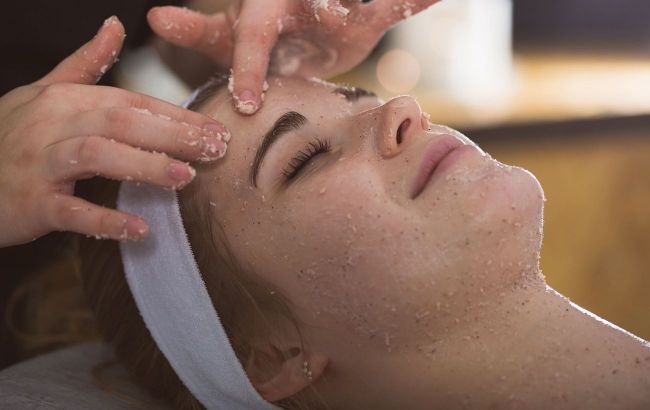Expert tips on proper exfoliation for healthy skin
 Photo: Should you use a face scrub (freepik.com)
Photo: Should you use a face scrub (freepik.com)
Facial scrub is a cosmetic product used for effectively cleansing the skin of the face by exfoliating dead skin cells. The main components of facial scrubs include abrasive particles (such as ground or finely milled coffee particles, sugar, salt, oats, etc.), which help remove pigmented cells and impurities from the skin's surface. Is a scrub necessary in skincare? The Huffington Post gives advice on the right usage of scrubbing.
What do you need to know about skin scrubbing
There are two main methods of exfoliating the face and body: mechanical and chemical. Mechanical peeling involves using brushes, sponges, or grainy scrubs.
Chemical exfoliants include serums, peels, and other products that contain substances such as glycolic, salicylic, and other acids, which gently dissolve dead skin cells.
Avoid exfoliating sunburned skin or skin with cuts, insect bites, or other wounds.
Should you physically cleanse your skin
Physical scrubs can temporarily remove oil, dirt, and dead skin cells, as well as thin out thicker areas of skin, such as on the heels.
Physical or mechanical scrubs' abrasiveness can cause irritation, dryness, and breakouts, especially if you have sensitive skin or conditions like eczema.
However, when dead skin cells accumulate, they can clog pores and cause whiteheads and blackheads.
Therefore, if your skin is prone to acne or is oily, physical peeling may be beneficial a couple of times a week, as long as it does not cause irritation but no more.
Why is chemical peeling better
Chemical peeling is usually better tolerated by most people, especially if you have normal or dry skin.
Look for products such as serums, toners, or body lotions that contain alpha-hydroxy acid (AHA), such as glycolic, lactic, or citric acid.
You can also look for beta-hydroxy acid (BHA), such as salicylic acid. These substances can remove dead skin cells, cleanse pores, and improve skin texture without being abrasive.

